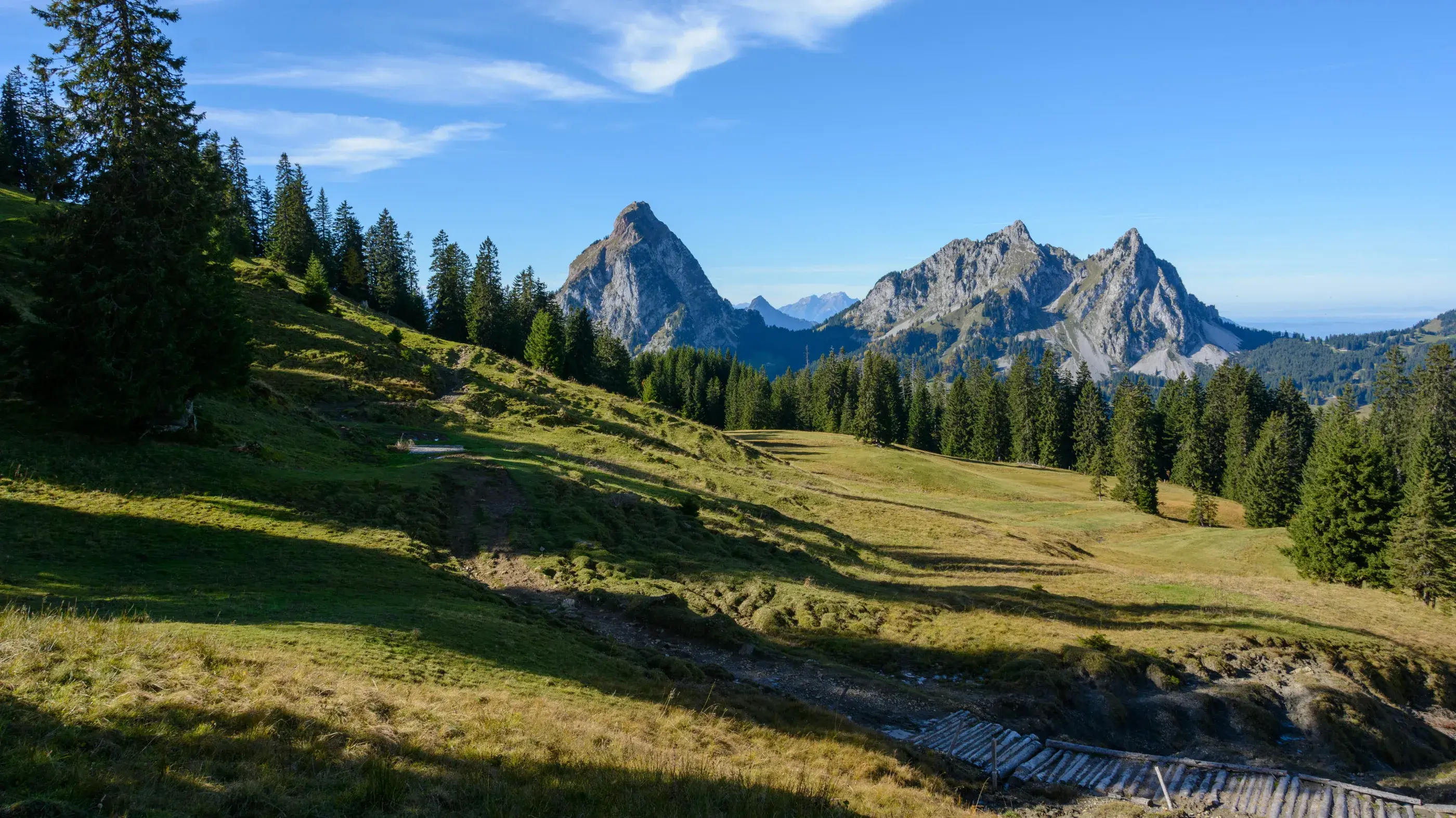Urban Ecology Research Group
Nature in urban space

Our goals
The focus of the Urban Ecology Research Group is the ecology of fauna, flora and habitats in urban areas. Projects for the promotion of biodiversity in urban regions are implemented in various thematic sectors. Owed to the increased sensitivity of the population, nature can reclaim niches that were thought to be lost. Through eco-faunal and vegetation-ecological investigations, the Urban Ecology Research Group determines the chances and limits of this potential.
- How can specific species groups be specifically promoted in urban regions?
- How can green roofs and solar energy production be combined?
- How can biodiversity be promoted on green roofs while optimizing the water balance, particularly on roofs with low loads?
The Urban Ecology Research Group at the ZHAW develops solutions together with various stakeholders. Partners and clients consist of general contractors, nature conservation organizations and authorities.
Subject areas
Promoting biodiversity in urban areas
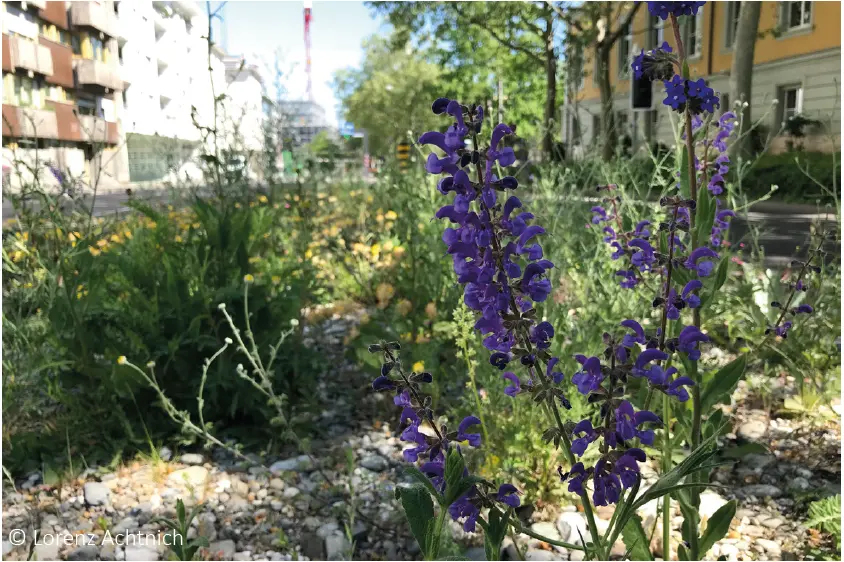
Cities have been shaped by their inhabitants and their land use demands, having turned urban areas into a diverse mosaic of habitats, thereby creating a home to a variety of plant and animal species. Redensification, climatic changes and new construction methods are putting pressure on urban flora and fauna. This negative development can be counteracted by eco-friendly infrastructure, climate-adapted green spaces and ecological compensation. The Urban Ecology Research Group develops spatially relevant solutions, promoting biodiversity in urban areas.
Ecological green roofs
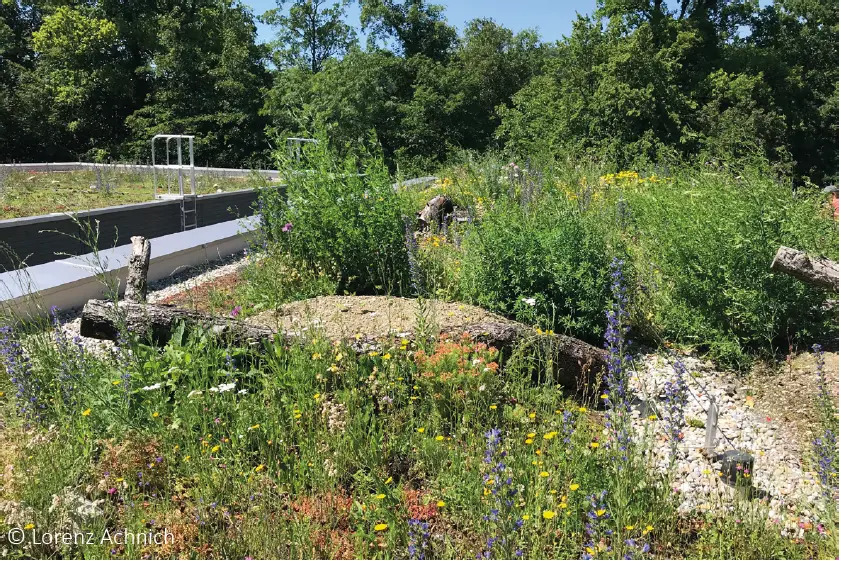
Urban planners and developers increasingly focus on green roofs as an ecological compensation measure. In order for a green roof to exploit its full ecological potential, decisive control variables must be taken into account during planning and implementation. The Urban Ecology Research Group develops and investigates green roofs with high ecological value, and green roofs are evaluated and optimized on the basis of ecofaunal and vegetational ecology studies.
Amphibians in urban areas
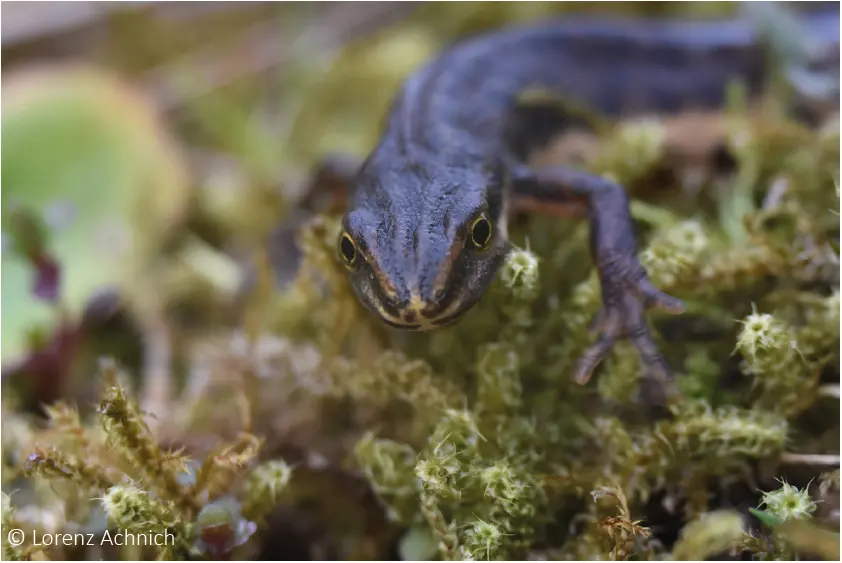
Amphibians move between spawning grounds and hibernation grounds even in densely populated areas. Numerous obstacles impede this migration. The Urban Ecology Research Group investigates the effect of amphibian guidance systems and surveys amphibian populations in urban areas.
Ecology of native orchids
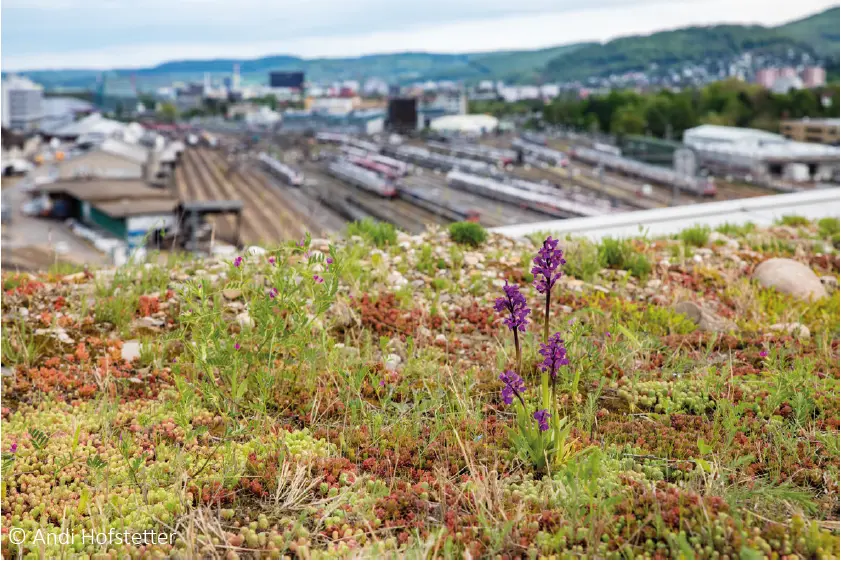
Switzerland is home to 70 orchid species, many thereof rare or even threatened. Orchids colonize a wide variety of habitats such as dry meadows, sparse forests or bogs. Regardless of habitat, shared among orchids is their dependence on a fungus as a symbiotic partner. The Urban Ecology Research Group conducts research on symbiotic in vitro propagation of orchids and on the establishment of orchids on green roofs, acting as a substitute habitat for some orchid species.
Native beetle fauna
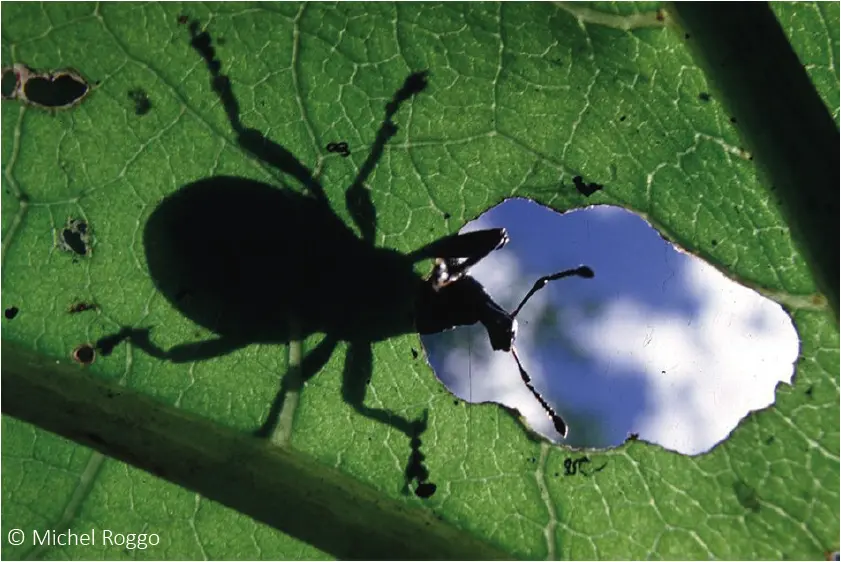
Beetles are hard to beat as ecological indicators owing to their diversity and the versatility of their ecological requirements. The Urban Ecology Research Group therefore collects and studies the native beetle fauna. Within various projects, collections are created for documentation and comparison purposes. Projects are carried out across all beetle taxa, with a focus on deadwood beetles, beetles of floodplains, beetles of alpine highlands and beetles of green roofs.
Photovoltaics and green roofs

Professionally planned, flat roof greening and photovoltaic systems are not mutually exclusive. Energy production and biodiversity promotion can be harmonized with elevated panels and local structural elements. The Urban Ecology Research Group is testing the feasibility and quality of green roofs in combination with solar installations. Decisive factors such as arrangement and orientation of the panels or substrate selection and substrate thickness are examined.
Regional development
The thematic field of regional development facilitates and accompanies sustainability-oriented processes and projects in rural and mountain areas, nationally and internationally. The approach is oriented towards the needs of local actors. Approaches and contents make use of the regional potentials in the thematic fields of nature and environment, agriculture as well as culture and landscape. Research focuses on the empowerment of actors, cooperation projects and cross-sectoral networking.
This also might interest you
Continuing education
Find out about our wide offer on CAS and courses in continuing education.
IUNR research projects
Find out about the breadth of subjects covered by our Institute.
Study
Continuing education
IUNR research projects
Find out about BSc and MSc programmes at IUNR.
Find out about our wide offer on CAS and courses in continuing education.
Find out about the breadth of subjects covered by our Institute.

